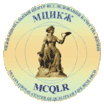|
A. F. Chernousov1, T. V. Horobryh1, F. P. Vetshev1, D. Mugadzaveta1, S. V. Osminin1, T. P. Nikitina2,3, T. I. Ionova2,3
Quality of life in patients with long-term complicated gastroesophageal reflux disease after surgery
1I. M. SECHENOV FIRST MOSCOW STATE MEDICAL UNIVERSITY, MOSCOW
2MULTINATIONAL CENTER FOR QUALITY OF LIFE RESEARCH, SAINT-PETERSBURG
3SAINT-PETERSBURG MULTISPECIALITY MEDICAL CENTER, UNIVERSITY CLINIC, SAINT-PETERSBURG
Reflux esophagitis is one of the most common and socially significant chronic diseases, which causes a significant disruption in the quality of life of patients. Currently, surgical treatment using one of the generally accepted approaches - fundoplication or valvular gastroplication, is widely used to treat patients with this pathology, depending on the degree of acquired esophageal contraction due to reflux esophagitis.
The aim of the study was to study the long-term results of surgical treatment in patients with a long-term and complicated reflux-esophagitis taking into account the data on the quality of life of patients. The study included 200 patients undergoing treatment in Department of faculty surgery N.N. Burdenko PMGMU named after I.M. Sechenov for complicated reflux esophagitis (mean age 56 ± 13,9 years, 56,5 % — women). All patients were divided into 2 groups according to the degree of shortening of the esophagus: the first group — 98 patients with acquired short esophagus of the 1st degree; the second group consisted of 102 patients with acquired short esophagus of the 2nd degree.
A comprehensive assessment of the effectiveness of surgical intervention in all patients in the period from 6 months to 10 years after surgery included X-ray, EHDS and quality of life assessment using the RAND SF-36 and GSRS questionnaires. In 94 % of patients in the long-term period, a positive result was achieved from performed antireflux operations on the basis of clinical and instrumental data. Quality of life indicators across all scales of SF-36 questionnaires were statistically significantly higher after surgical intervention in patients in both groups.
At the same time, there were no significant differences with the quality of life indicators in the comparison group. According to the special questionnaire GSRS also showed a significant improvement in the quality of life of patients after surgery on all scales. The results of the study on the basis of objective examination data and analysis of the quality of life of patients in the long-term postoperative period demonstrate the effectiveness and reliability of antireflux operations designed in accordance with the degree of shortening of the esophagus.
|





